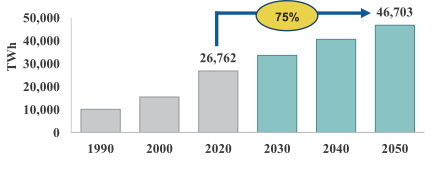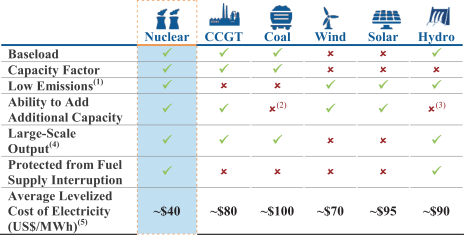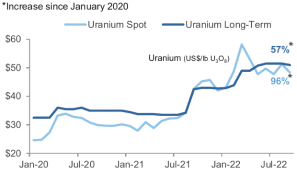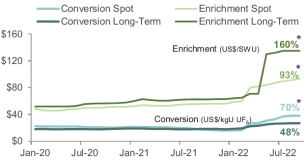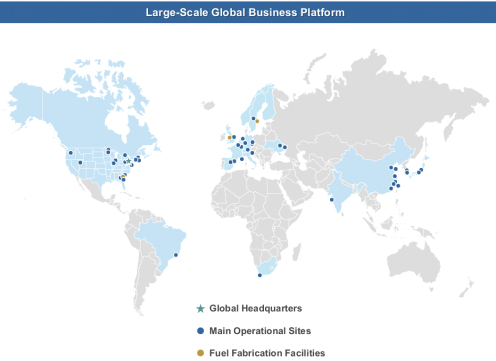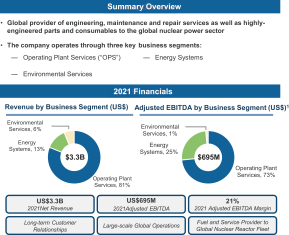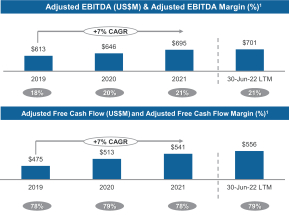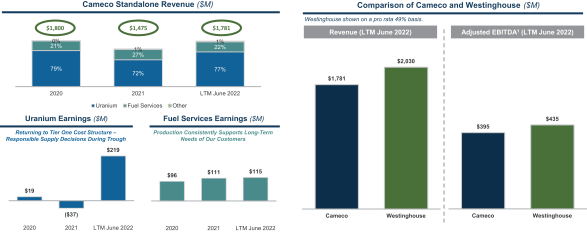residents of Canada, and all or a substantial portion of their assets, and a substantial portion of the Company’s assets, are located outside the United States. The Company has appointed an agent for service of process in the United States but it may be difficult for US investors to effect service within the United States upon the Company or those directors, officers and experts who are not residents of the United States. Investors should not assume that a Canadian court would enforce a judgment of a US court obtained in an action against the Company or such other persons predicated on the civil liability provisions of the US federal securities laws or the securities or “blue sky” laws of any state within the United States or would enforce, in original actions, liabilities against the Company or such persons predicated on the US federal securities laws or any such state securities or “blue sky” laws. The Company’s Canadian counsel has advised the Company that a monetary judgment of a US court predicated solely upon the civil liability provisions of the US federal securities laws would likely be enforceable in Canada if the US court in which the judgment was obtained had a basis for jurisdiction in the matter that was recognized by a Canadian court for such purposes. The Company cannot provide assurance that this will be the case. It is less certain that an action could be brought in Canada in the first instance on the basis of liability predicated solely upon such laws.
The Company filed with the SEC, concurrently with the US Registration Statement on Form F-10 of which this Prospectus Supplement forms a part, an Appointment of Agent for Service of Process on Form F-X. Under the Form F-X, the Company appointed Cristina Giffin, Power Resources, Inc., Smith Ranch-Highland Operation, 762 Ross Road, Douglas, Wyoming, USA, 82633 as its agent for service of process in the United States in connection with any investigation or administrative proceeding conducted by the SEC, and any civil suit or action brought against or involving the Company in a US court arising out of or relating to or concerning this Offering.
DOCUMENTS FILED AS PART OF THE REGISTRATION STATEMENT
The following documents have been filed or furnished with the SEC as part of the US Registration Statement of which this Prospectus Supplement forms a part: (i) the documents listed under the heading “Documents Incorporated by Reference”; (ii) powers of attorney from our directors or officers, as applicable; (iii) the consent of KPMG LLP; (iv) the consents of technical experts; (v) the Trust Indenture, dated as of May 22, 2012, between Cameco and The Bank of New York Mellon, as trustee; and (vi) the statement of eligibility of The Bank of New York Mellon, as trustee, on Form T-1.
ELIGIBILITY FOR INVESTMENT
In the opinion of McCarthy Tétrault LLP, counsel to the Company, and Borden Ladner Gervais LLP, counsel to the Underwriters, based on the current provisions of the Tax Act in force as of the date hereof, provided that the Common Shares offered hereby are listed on a designated stock exchange (which currently includes the TSX and the NYSE) or the Company is a “public corporation” for the purposes of the Tax Act, the Common Shares, if issued on the date hereof, would be, on such date, qualified investments under the Tax Act for a trust governed by a registered retirement savings plan (“RRSP”), a registered retirement income fund (“RRIF”), a registered education savings plan (“RESP”), a registered disability savings plan (“RDSP”), a deferred profit sharing plan, or a tax free savings account (“TFSA”).
Notwithstanding that the Common Shares may be qualified investments for a trust governed by an RRSP, RRIF, RESP, TFSA or RDSP, the annuitant under an RRSP or RRIF, a subscriber of an RESP, or the holder of a TFSA or an RDSP, as the case may be, may be subject to a penalty tax if such Common Shares are “prohibited investments” for the RRSP, RRIF, RESP, TFSA or RDSP within the meaning of the Tax Act. The Common
Shares will generally not be a “prohibited investment” provided that the annuitant under the RRSP or RRIF, or a subscriber of the RESP, or the holder of the TFSA or the RDSP, as the case may be, deals at arm’s length with the Company for purposes of the Tax Act and does not have a “significant interest” (as defined in the Tax Act) in the Company. In addition, Common Shares will not be a prohibited investment if such Common Shares are “excluded property” as defined in the Tax Act for a trust governed by an RRSP, RRIF, RESP, TFSA or RDSP.
S-63


